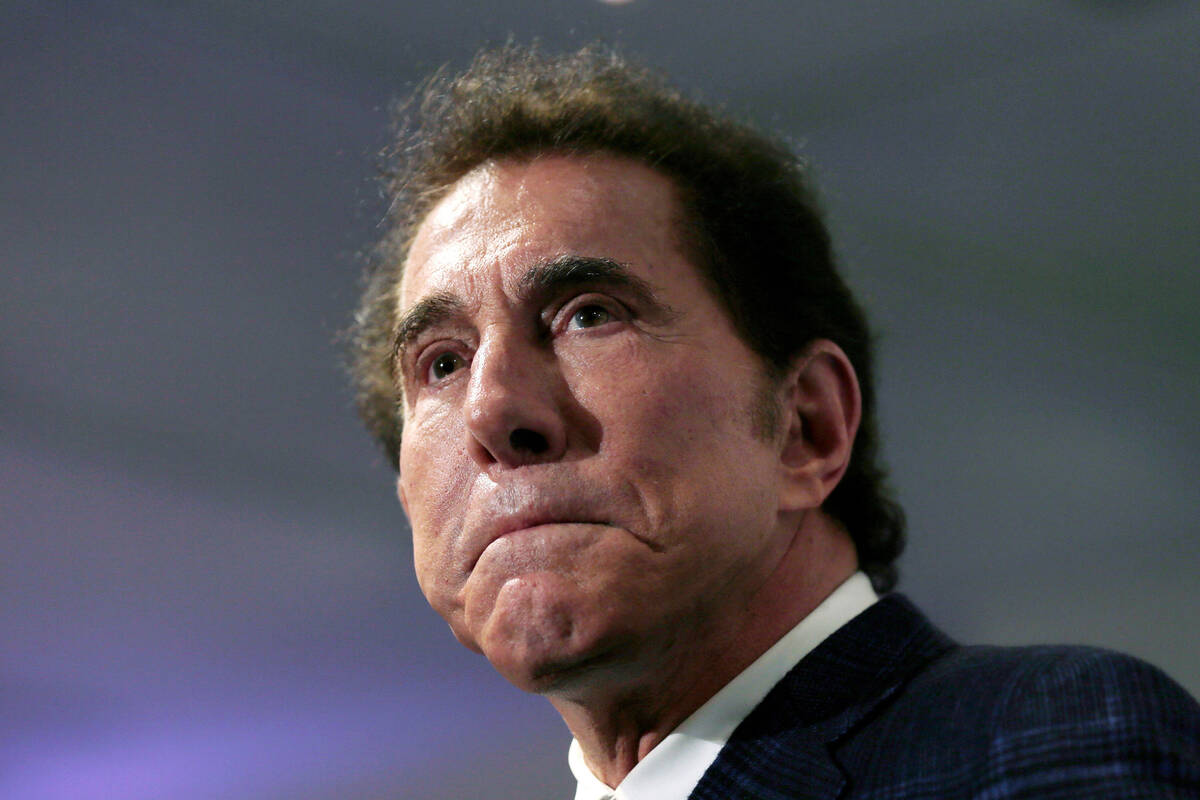Steve Wynn lobbying lawsuit dismissed by federal judge
WASHINGTON — A federal judge on Wednesday dismissed a Justice Department lawsuit that sought to force longtime casino developer Steve Wynn to register as a foreign agent because of lobbying work it said he conducted at the behest of the Chinese government during the Trump administration.
U.S. District Judge James Boasberg did not address in his 20-page order whether Wynn was functioning as a Beijing agent. Instead, he said he agreed with Wynn’s lawyers that the department could not compel him now to register as a foreign agent because any relationship Wynn had with the Chinese government ended in 2017.
The order is a setback for stepped-up Justice Department efforts to enforce a decades-old law known as the Foreign Agents Registration Act. It requires anyone who lobbies on behalf of a foreign government or entity to register their work with the U.S. government.
“We are delighted that the District Court today dismissed the government’s ill-conceived lawsuit against Steve Wynn,” his lawyers, Reid Weingarten and Robert Luskin, said in a statement. “Mr. Wynn never acted as an agent of the Chinese government and never lobbied on its behalf.”
The Justice Department has said that it repeatedly advised Wynn over the past four years to register. It sued him in May to try to force him to do so, describing the suit as the first of its kind in more than three decades.
Wynn resigned in 2018 as chairman and CEO of the casino and resorts company bearing his name, after multiple women accused him of sexual misconduct.
The complaint alleged that Wynn, a prolific Republican donor and onetime finance chairman of the Republican National Committee, lobbied then-President Donald Trump and members of his administration for several months in 2017 to expel from the United States a Chinese citizen who had been charged with corruption in China and was seeking political asylum in America. Efforts to send the man back to China were ultimately unsuccessful.
According to the complaint, the lobbying effort was conducted on behalf of senior Chinese government officials, including Sun Lijun, the then-vice minister of the Ministry of Public Security who sought Wynn’s help in trying to get the Chinese man’s new U.S. visa application denied.
The lobbying effort also included conversations over dinner with Trump and by telephone, and multiple visits to the White House by Wynn for apparently unscheduled meetings with the issue was discussed.
The complaint said Wynn was motivated to protect his business interests in China. At the time, his company owned and operated casinos in the Chinese territory of Macau. The government in Macau had restricted the number of gaming tables and machines that could be operated at Wynn’s casino, the Justice Department said, and he was scheduled to renegotiate licenses to operate casinos in 2019.
Lawyers for Wynn denied at the time of the suit that he had acted as an agent of the Chinese government or that he had had an obligation to register. They later moved to dismiss the lawsuit, noting that his relationship with the Chinese government had ended in 2017.
Wynn’s team cited a 1987 appeals court opinion suggesting that the obligation to register as a foreign agent terminates once the relationship with foreign entity has ended.






















